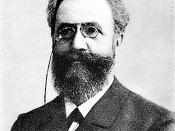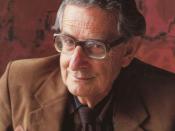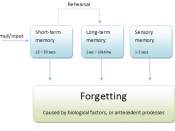Craik and Lockhart (1972) argued that the concept of rehearsal alone is not sufficient to account for long-term memory. Rehearsal is a kind of processing but it is not very deep. Craik and lockhart believed that it is the"depth"of processing which determines whether information is stored over a long rather than a short period. Craik and lockhart defined "depth" in terms of a continuum: an example of shallow processing would be to say whether a word was written in capital letters, whereas an example of deep processing would be to say if the word would fit in a given sentence (this involves semantic processing or a consideration of meaning).
Hyde and Jenkins (1973) gave participants five different tasks: the participants were asked to rate a list of words for pleasantness, estimate their frequency of usage, count the letters "e" and "g", decide what part of speech it was or decide if the word fitted into certain sentences.
When tested for incidental learning (recall without warning ), recall was best in the first two conditions which involved deep processing.
Craik and watkins (1973) Showed that rehearsal time does not "deepen" the memory for material, as would be predicted by the two process- model. They gave subjects the tasks of listening to a series of words but only havin to keep in mind the most recent words that begun with a given letter, say, "d". Therefore, in the sequence bold...day...fish...track...dirt, subjects will hold day until the word dirt was heard some seconds later. Dirt would in turn become discarded when the next D-word appeared, and so forth. Using this elegant technique it is possible to vary the length of time that subjects spend rehearsing given words. For instance, in the sequence dog...baby...drain...gold...risk...deed, the word drain is rehearsed for approximately twice as...


